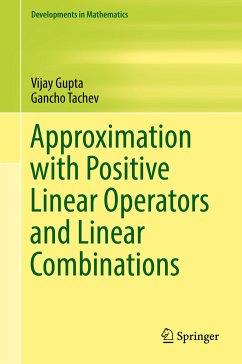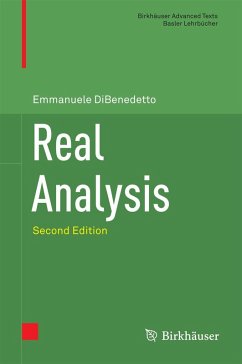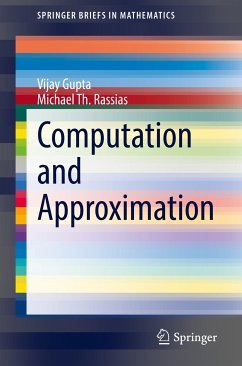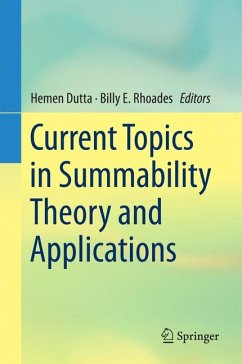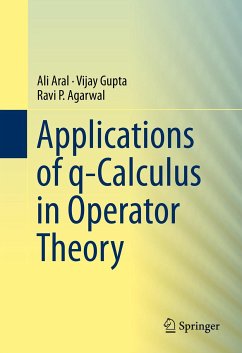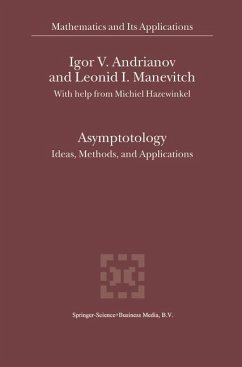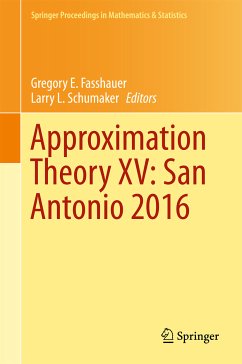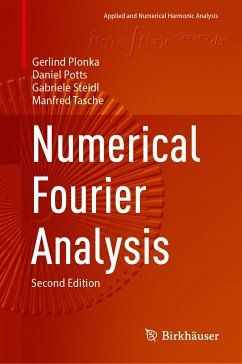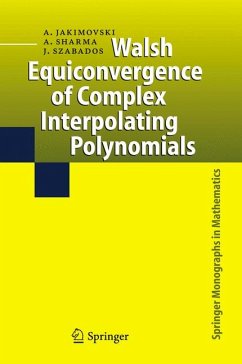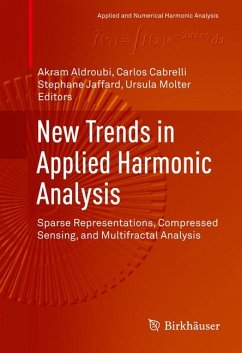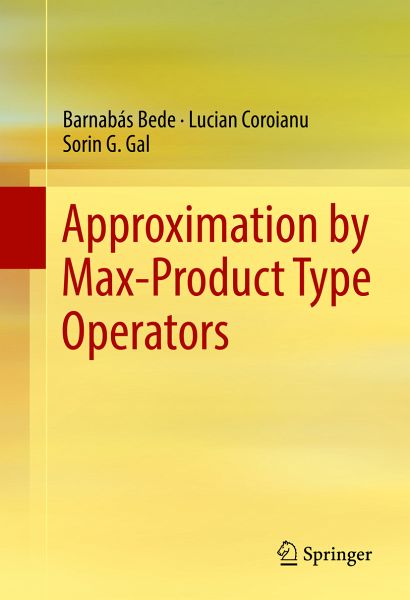
Approximation by Max-Product Type Operators (eBook, PDF)
Versandkostenfrei!
Sofort per Download lieferbar
80,95 €
inkl. MwSt.
Weitere Ausgaben:

PAYBACK Punkte
40 °P sammeln!
This monograph presents a broad treatment of developments in an area of constructive approximation involving the so-called "max-product" type operators. The exposition highlights the max-product operators as those which allow one to obtain, in many cases, more valuable estimates than those obtained by classical approaches. The text considers a wide variety of operators which are studied for a number of interesting problems such as quantitative estimates, convergence, saturation results, localization, to name several.Additionally, the book discusses the perfect analogies between the probabilist...
This monograph presents a broad treatment of developments in an area of constructive approximation involving the so-called "max-product" type operators. The exposition highlights the max-product operators as those which allow one to obtain, in many cases, more valuable estimates than those obtained by classical approaches. The text considers a wide variety of operators which are studied for a number of interesting problems such as quantitative estimates, convergence, saturation results, localization, to name several.
Additionally, the book discusses the perfect analogies between the probabilistic approaches of the classical Bernstein type operators and of the classical convolution operators (non-periodic and periodic cases), and the possibilistic approaches of the max-product variants of these operators. These approaches allow for two natural interpretations of the max-product Bernstein type operators and convolution type operators: firstly, as possibilistic expectations of somefuzzy variables, and secondly, as bases for the Feller type scheme in terms of the possibilistic integral. These approaches also offer new proofs for the uniform convergence based on a Chebyshev type inequality in the theory of possibility.
Researchers in the fields of approximation of functions, signal theory, approximation of fuzzy numbers, image processing, and numerical analysis will find this book most beneficial. This book is also a good reference for graduates and postgraduates taking courses in approximation theory.
Additionally, the book discusses the perfect analogies between the probabilistic approaches of the classical Bernstein type operators and of the classical convolution operators (non-periodic and periodic cases), and the possibilistic approaches of the max-product variants of these operators. These approaches allow for two natural interpretations of the max-product Bernstein type operators and convolution type operators: firstly, as possibilistic expectations of somefuzzy variables, and secondly, as bases for the Feller type scheme in terms of the possibilistic integral. These approaches also offer new proofs for the uniform convergence based on a Chebyshev type inequality in the theory of possibility.
Researchers in the fields of approximation of functions, signal theory, approximation of fuzzy numbers, image processing, and numerical analysis will find this book most beneficial. This book is also a good reference for graduates and postgraduates taking courses in approximation theory.
Dieser Download kann aus rechtlichen Gründen nur mit Rechnungsadresse in A, B, BG, CY, CZ, D, DK, EW, E, FIN, F, GR, HR, H, IRL, I, LT, L, LR, M, NL, PL, P, R, S, SLO, SK ausgeliefert werden.



